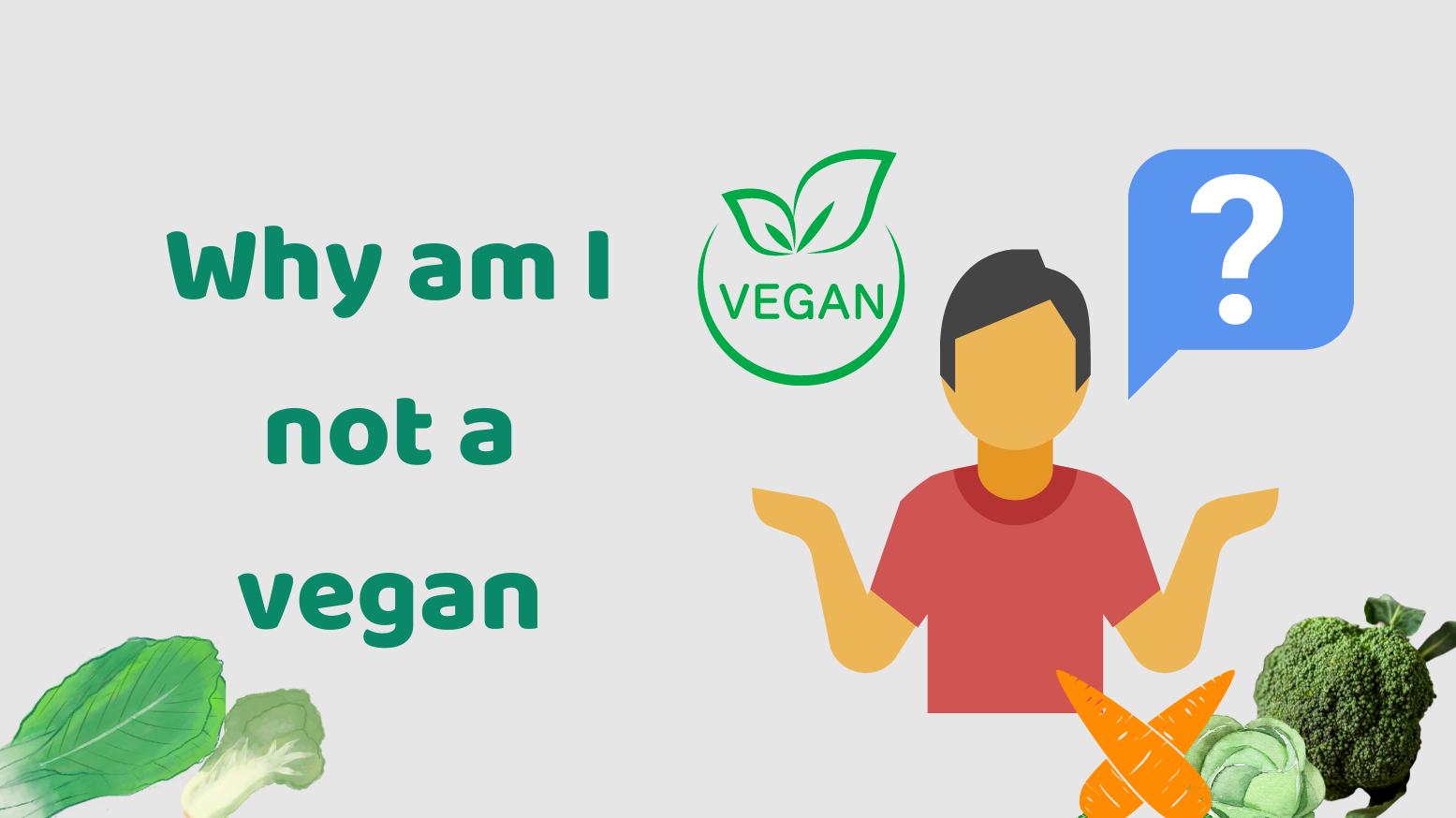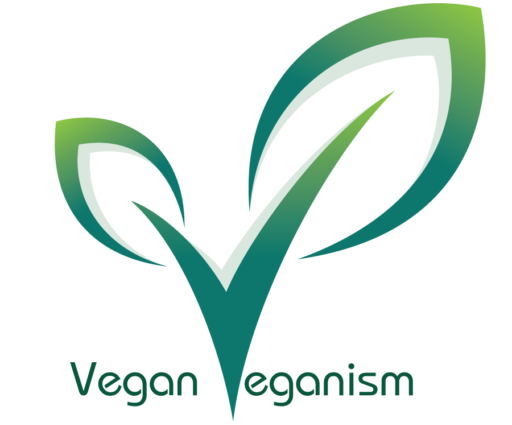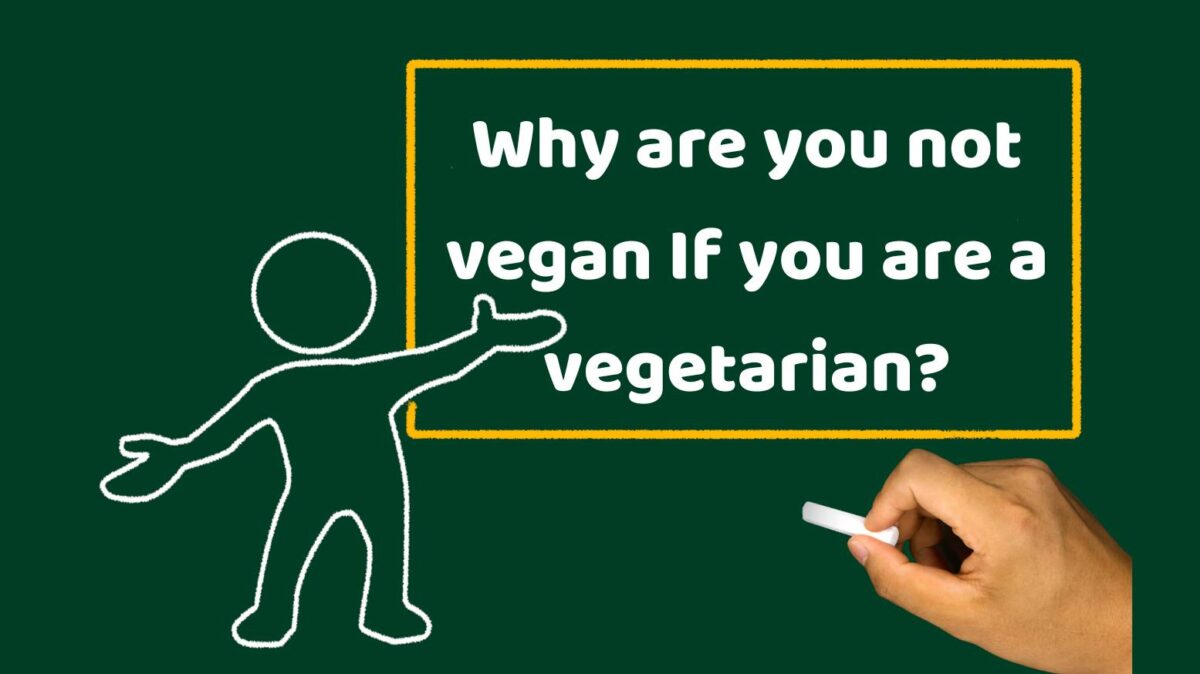Vegetarianism is more popular than veganism. People become vegetarians for a variety of reasons: some are motivated by their religious beliefs, some want to maintain their health, and some simply don’t like the taste of meat and eggs. They do not shy away from having dairy items and honey. It serves as their go-to source of protein and energy without any animal products.
Why am I not a vegan?

I would like to make clear what kind of diet I follow: I am not vegan. Instead, I am a vegetarian. It is important to remember that there is no law requiring every person who becomes a vegetarian to become a vegan. Even though
I will always refuse to support animal abuse, I do not force my dietary preferences on other people, especially when it comes to steak. I don’t think it’s unethical to eat a steak because I genuinely believe in human autonomy and acknowledge that food tastes are highly subjective.
Now, when we examine the reasoning behind why some people choose to stay vegetarians without becoming vegans, a few things become clear:
Alignment of Lifestyle: A few people discover that leading a vegan lifestyle does not perfectly fit with their personal preferences. Eating decisions are as varied and subjective as choosing a favorite soundtrack.
Ideological Variances
The gap between strict vegan devotees and vegetarians is partly due to differences in ideology. Excessively confrontational activism in vegan communities might backfire, calling for a more subtle way to raise awareness without triggering guilt.
Health Considerations

Not everyone should follow a vegan diet to the letter. Nutritional needs, like the need for protein, iron, and calcium, provide difficulties that should be carefully considered, particularly for people who are coping with medical illnesses or autoimmune disorders.
Cultural and Religious Influences

There are situations in which strict commitment to veganism becomes complex and difficult to explain. Examples of these types of situations are Hindu rituals involving milk and ghee or families that hunt for food.
Essentially, choosing to remain vegetarian without becoming vegan is an extremely personal choice. It entails the complex interaction of cultural bonds, health concerns, ideological subtleties, and lifestyle preferences. Recognizing the variety of food preferences, I support an inclusive strategy that honors personal choices without forcing one viewpoint on another.
What is the difference between vegan and vegetarian?
When it comes to eating habits, it’s interesting to remember that about 5% of people worldwide identify as vegetarians, and 3% as vegans. The fundamental principle of vegetarianism is the avoidance of animal protein. People choose to adopt this diet for a variety of reasons, such as personal taste preferences, health benefits, or religious beliefs.
Unlike vegans, vegetarians can include dairy products and honey in their meals as legitimate sources of protein and energy. The vegetarian community can have a wide range of food preferences thanks to this open attitude.
A stricter set of rules is introduced in the vegan realm. Vegans abstain from animal products in all forms, including dairy, honey, fur, and leather, as a matter of principle. They also avoid eating animal protein. Their dedication is rooted in a strong set of beliefs that prioritize the abolition of animal abuse and suffering. Veganism is more than just a diet; it’s a way of life that reflects moral principles that go beyond what people eat and demonstrates a commitment to fostering an environment in which animals are spared needless suffering. The unique moral basis of veganism adds an interesting dimension to the global mosaic of food preferences.
Many vegans find it difficult to sit with and accept those who eat meat and other animal products. They believe they are being inconsiderate, yet the other party can perceive them as “extremely sensitive.” This is an unending conflict. But I think the only wise course of action is to take the middle ground.
The world is large, and the variety of cultures inside it is immense. And for that reason, the world is incredibly lovely. Imagine what would happen to the globe if one “bland,” “morally correct,” culture attempted to impose its beliefs on everyone else simply because they disagreed with them on some issues. If they didn’t just impose their beliefs on people but also showed disregard for other people’s beliefs, the world would be at war.
You may also like:
How can I convince my roommates not to cook non-vegetarian food in the house
What is the benefit of being a raw vegan compared to just a vegan
FAQs
1. Why are you not vegan If you are a vegetarian?
A vegetarian abstains from eating any animal products, including fish, poultry, and meat. A vegan is a more stringent vegetarian who abstains from eating dairy, eggs, and other foods that come from animals.
2. Is a vegetarian healthier than a vegan?
Both plant-based diets are beneficial to health, although vegetarianism provides more food selections high in protein than veganism, as well as sources of calcium and vitamin D.
3. Did vegetarian used to mean vegan?
Vegans and vegetarians do not eat meat but, it is not politically correct to say that veganism is the evolution of vegetarianism. This is because they have similar but different dietary needs and lifestyles.
4. What is being vegetarian?
A vegetarian diet excludes all forms of shellfish and meat. There are numerous variances to this, though; some vegetarians use dairy products and eggs, while others abstain from either or both.
5. What population of the world is vegetarian?
According to a recent study, 22% of the global population is vegetarian.
6. Which country has the highest vegetarian population?
With an estimated 20–39% of its population vegetarian, India has the greatest number of vegetarians worldwide.
7. Can vegetarians drink milk?
Yes, they consume dairy products, such as milk, cheese, yogurt and butter.

